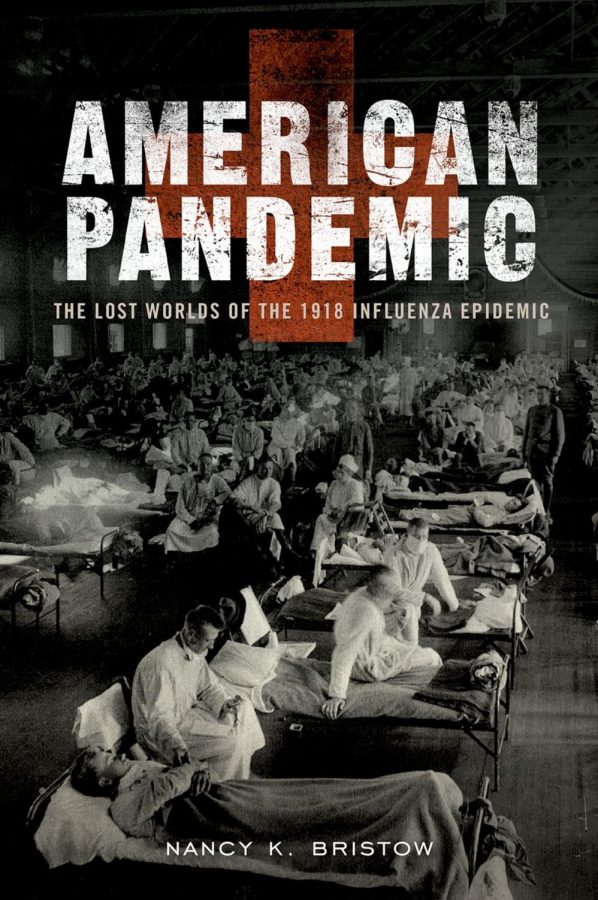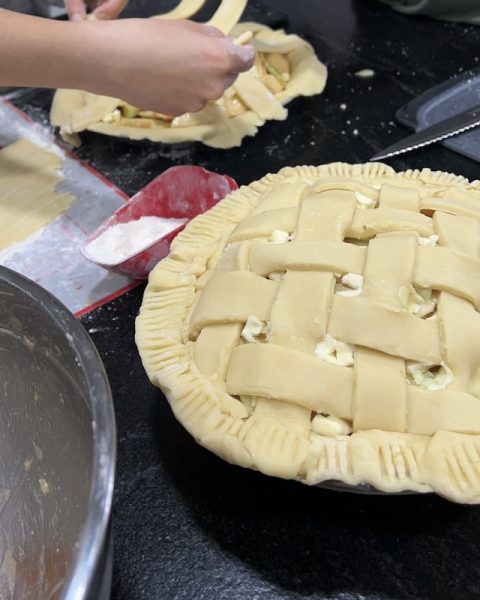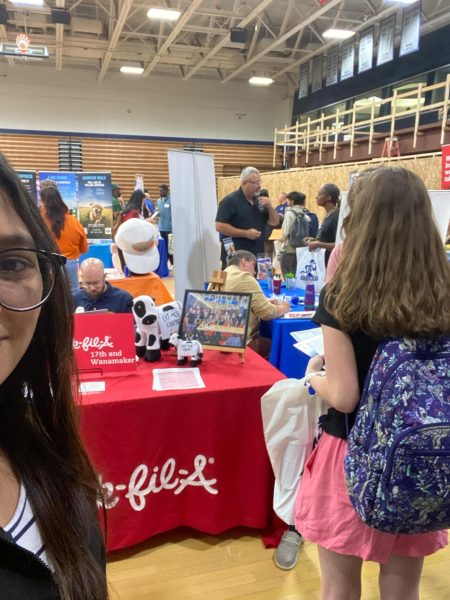Analyzing the I-Read book “American Pandemic”
Courtesy of Nancy K. Bristow and Oxford University Press
Every year, the University chooses a book that is relatable to the world. “American Pandemic” related itself to the world we have suffered through today.
There are many books assigned to us to read. Some are entertaining, and some fill the void of important books for those who don’t read much. “American Pandemic” fits into the former group, and though it is not truly deserving of the latter, it can fill that part if a reader so desires.
Considering the current state of our world, it is incredibly topical. One only has to look at the cover to think, “Yes. We can make freshmen read this book.” Inside is a historical account which considers the death of evidence we have to shape a narrative. It is one of collective amnesia, the response of a people who wish to portray strength and a specific way of reacting even as the whims of the world shatter all preconceived notions.
Special care is given to the perspectives of medical professionals and their private correspondence, as well as that of the suffering of the lower class, ethnic minorities and the rise of soon-to-be enfranchised.
As a work of scholarship, it creates a narrative out of the sources it was provided, and does so well. To denigrate its prose for a rigid adherence to APA format is not appropriate to the work, and so other than this sentence it shall not be mentioned again. It is a fine example of history in these times, how the many perspectives eventually synthesize into a work regardless of what naysayers and authorities might say or do about it. It is immature to compare it to our time yet, but in the narratives and opinions of 2020, one can take solace in the slow shifting toward an understanding like this. Collective memory is always debunked by history.
Though it may seem bloated, esoteric and just generally too much to even be worth it, the sources are interesting if one ever has the time to read them. They offer the full perspective alongside other facts of the time, anecdotes and recallings that are often left out in books with purpose. It is a way to peer into another’s life, and unlike the worlds of fiction, it is backed up by the strange assonance of history. The statistics are simply that, but the accounts tell us reality better than any author ever could. It gives us their emotions, values and duties in their own words, so that we may apply the wisdom and folly of those that came before to our own lives if we so please.
We have our own duty in the present. We, as students, must read the book, or at least some part of it. I will not lie to you. It is not a good book, and it won’t change your life. Such books do not exist. Instead, it will lift the veil on singular perspectives, and urge you to consult everything as it is rather than how it feels. That is all we can expect of books, and that is all.
Edited by: Madison Dean
Your donation will support the student journalists of Washburn University. Your contribution will allow us to purchase equipment and cover our annual website hosting costs.













